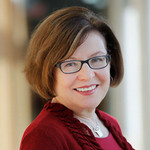Beginning a Conversation About American Modern Orthodox Jews
Jan. 24, 2018
By Sylvia Barack Fishman
Are Modern Orthodox communities ready for female clergy or synagogue presidents? How comfortable are they when women say Mourner's Kaddish without men?
These and other issues are the subject of a JOFA webinar when HBI co-director Prof. Sylvia Barack Fishman will introduce and moderate a discussion with researcher Dr. Mark Trencher, author of the new "Nishma: Profile of American Modern Orthodox Jews," survey research sponsored by the Micah Foundation. Among other findings, the Nishma survey spotlights sweeping liberalization among Modern Orthodox Jews in attitudes toward expanding women’s roles in public Judaism, including the synagogue.
The JOFA webinar "Profile of American Modern Orthodox Jews" will be streamed live from JOFA's Facebook page from 7:30-8:30 p.m. Wednesday, Jan. 31. For more information, visit JOFA's event page.
Key findings regarding women's roles include:
- Three-quarters of Modern Orthodox respondents said that women should be eligible to be synagogue presidents.
- The mekhitza (divider between men and women) should be "woman friendly."
- More than two-thirds said women should be eligible to speak from the bima (front stage).
- More than two-thirds said women should be able to recite the Mourner's Kaddish even if no men are reciting it.
- More than half agreed that women should have expanded roles in the clergy. Younger Modern Orthodox men (57%) were much more likely than older Modern Orthodox men (48%) to agree with that statement.
Another key finding is that Orthodox retention rates today are dramatically better today than they were 30, 40 or 50 years ago. Younger Modern Orthodox Jews as a group have different attitudes, behaviors and values than their parents' generation. However, the broad range of Orthodox institutions, including liberal Orthodox day schools and rabbinical training institutions for both men and women, provide a space for Jews who in earlier generations migrated out of Modern Orthodoxy into other wings of Judaism. Orthodox retention rates reflect this shift towards diverse Orthodox institutions that provide spiritual homes for the people who in earlier generations often left Orthodoxy. Their presence strengthens the Modern Orthodox community as a whole.
Survey respondents were highly educated Jewishly. The vast majority had substantial Jewish education (95% of men and 89% of women). Respondents almost universally view their Jewish education as an ongoing lifelong process: 97% of men and 95% of women participate in regular Judaic study at least once a week.
In addition, Modern Orthodox Nishmah survey participants are transmitting Modern Orthodox Jewish culture to the next generation. 83% of their school-age children in grades 1-12 attend Orthodox day school. Significantly, despite often-articulated anxieties that Orthodox co-education may be on the decline, 75% of the day schools these children attend are coeducational — indicating that they are adapting to shifting gender roles and expectations.
This educational continuity is especially important because Dr. Trencher, the survey author, is concerned that the broad range of attitudes may lead to a schism between right- and left-wing institutions, leadership, and laity in the American Modern Orthodox community. But one may argue instead that Modern Orthodoxy's broad continuum of attitudes, behaviors and values is a positive development in contemporary communities.
 Sylvia Barack Fishman is the Joseph and Esther Foster Professor of Judaic Studies
Sylvia Barack Fishman is the Joseph and Esther Foster Professor of Judaic Studies
and co-director of the Hadassah-Brandeis Institute.